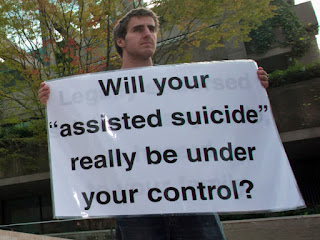This article was published by Bioedge on October 27, 2018
By Xavier Simons
Prosecutors in the Netherlands have dropped a case against a physician who euthanised a semi-conscious, severely impaired patient without written consent.
The case involved a 72-year-old woman suffering from metastatic pancreatic cancer, who was euthanized following cerebral haemorrhage that left her barely able to communicate. The woman had not signed a written declaration of intent, though the treating doctor said that the woman had expressed a desire for euthanasia on several occasions in the past.
The Public Prosecution Service announced Friday that it had conducted an investigation and said it was satisfied that the woman’s wish for euthanasia was voluntary and well-considered. They noted that, while the woman could not complete a written declaration of intent, she could nod and gesture with her hands, and that she had indicated that she wished to be euthanized.
The Dutch Regional Euthanasia Review Committees (RTE) had referred the case to authorities in 2017, along with three other cases of possible non-compliance with euthanasia regulations. The RTE were concerned that in this case there was no written consent, and they questioned the doctor’s interpretation of the patient’s “signals” following the brain haemorrhage. The RTE was also concerned that alternative options for relieving the patient’s suffering, such as palliative sedation, had not been adequately explored.
The Public Prosecution Service said that it intended to release its findings on the other cases within the next few weeks.
By Xavier Simons
Prosecutors in the Netherlands have dropped a case against a physician who euthanised a semi-conscious, severely impaired patient without written consent.
The case involved a 72-year-old woman suffering from metastatic pancreatic cancer, who was euthanized following cerebral haemorrhage that left her barely able to communicate. The woman had not signed a written declaration of intent, though the treating doctor said that the woman had expressed a desire for euthanasia on several occasions in the past.
The Public Prosecution Service announced Friday that it had conducted an investigation and said it was satisfied that the woman’s wish for euthanasia was voluntary and well-considered. They noted that, while the woman could not complete a written declaration of intent, she could nod and gesture with her hands, and that she had indicated that she wished to be euthanized.
The Dutch Regional Euthanasia Review Committees (RTE) had referred the case to authorities in 2017, along with three other cases of possible non-compliance with euthanasia regulations. The RTE were concerned that in this case there was no written consent, and they questioned the doctor’s interpretation of the patient’s “signals” following the brain haemorrhage. The RTE was also concerned that alternative options for relieving the patient’s suffering, such as palliative sedation, had not been adequately explored.
The Public Prosecution Service said that it intended to release its findings on the other cases within the next few weeks.


No comments:
Post a Comment